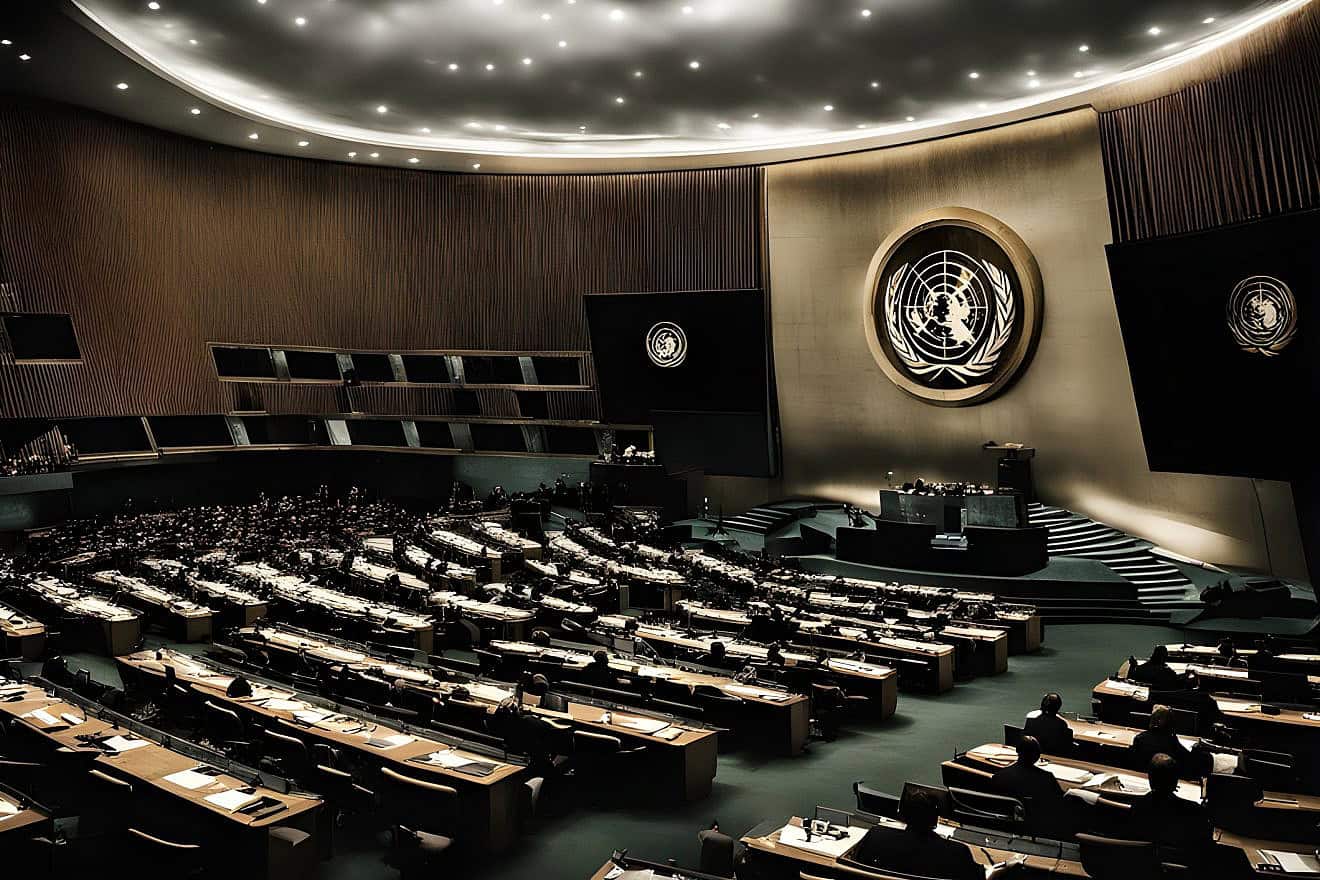The United Nations General Assembly convened today to vote on the “New York Declaration,” a groundbreaking resolution that represents a significant shift in the international approach to the Israeli-Palestinian conflict. For the first time in years, a major UN initiative explicitly condemns Hamas’s October 7, 2023 terrorist attack while simultaneously demanding the terror organization’s complete removal from Gaza’s leadership.
The New York Declaration on the Peaceful Settlement of the Question of Palestine and the Implementation of the Two-State Solution, presented jointly by France and Saudi Arabia, leaves no room for ambiguity regarding Hamas’s culpability. The resolution explicitly states that “Hamas must free all hostages” and formally condemns “the attacks committed by Hamas against civilians on the 7th of October.”
This represents a remarkable departure from the UN’s typical approach to the Israeli-Palestinian conflict. For nearly two years, Israel has rightfully criticized UN bodies for their disproportionate focus on condemning Israeli actions while failing to adequately address Hamas’s unprecedented terrorist assault that killed over 1,400 Israelis and took hundreds hostage.
Going beyond mere condemnation, the declaration takes the crucial step of demanding Hamas’s total elimination from Gaza’s governance structure. “In the context of ending the war in Gaza, Hamas must end its rule in Gaza and hand over its weapons to the Palestinian Authority, with international engagement and support, in line with the objective of a sovereign and independent Palestinian State,” the resolution states.
This requirement acknowledges what Israel has maintained throughout the conflict: that no sustainable peace is possible while a terrorist organization controls Gaza and maintains the capability to launch future attacks against Israeli civilians.
Hamas’s stranglehold on Gaza began in 2007 when the organization violently seized control from the Palestinian Authority following its electoral victory in 2006. Rather than governing responsibly, Hamas transformed Gaza into a launching pad for terrorism, diverting international aid meant for civilian infrastructure into an extensive network of tunnels and weapons systems. The organization’s charter explicitly calls for Israel’s destruction and the establishment of an Islamic state across all of historic Palestine.
Beyond Gaza, Hamas maintains significant influence in Judea and Samaria through its military wing, the Izz ad-Din al-Qassam Brigades, and affiliated cells that regularly carry out terrorist attacks against Israeli civilians and security forces. The organization’s reach extends throughout the region, supported by Iran’s proxy network and enabled by sympathetic elements within Palestinian society.
Notably absent from today’s proceedings is any acknowledgment of the UN’s own contradictory position regarding Hamas. Despite overwhelming evidence of the organization’s terrorist activities and its designation as a terrorist group by the United States, European Union, Israel, and other democratic nations, the United Nations has never officially classified Hamas as a terrorist organization. This glaring omission has undermined the UN’s credibility in addressing Middle Eastern conflicts and has emboldened Hamas to continue its violent activities under the guise of legitimate resistance.
Compounding the UN’s credibility problem are the mounting allegations and evidence of UNRWA’s (United Nations Relief and Works Agency) complicity with Hamas operations in Gaza. Multiple investigations have revealed that UNRWA facilities were used to store Hamas weapons, that UNRWA employees participated in the October 7 attacks, and that the agency’s educational materials promoted anti-Semitic content and glorified terrorism. These revelations have raised serious questions about the UN’s ability to maintain neutrality in its humanitarian operations and have highlighted how international aid intended for Palestinian civilians was diverted to support Hamas’s terrorist infrastructure.
The declaration has already garnered significant support, having been endorsed by the Arab League and co-signed by 17 UN member states in July. The vote precedes a crucial UN summit scheduled for September 22 in New York, co-chaired by Saudi Arabia and France, where French President Emmanuel Macron has pledged to recognize a Palestinian state formally.
However, this timing raises concerns about premature recognition that could reward terrorism. As Israeli Prime Minister Benjamin Netanyahu stated Thursday, “We are going to fulfill our promise that there will be no Palestinian state” under current circumstances. His position reflects legitimate Israeli security concerns about recognizing a state that could potentially fall under Hamas control or influence.
The United States, under Secretary of State Marco Rubio’s leadership, has appropriately pushed back against hasty recognition efforts. Rubio has warned that Palestinian statehood “cannot happen this way” through international recognition, which he correctly described as a “gift” to “Hamas.” Washington’s position reflects the reality that sustainable peace requires genuine Palestinian leadership committed to coexistence, not international gestures that ignore the fundamental problem of terrorist governance.
The proposed “temporary international stabilisation mission” mentioned in the declaration could play a crucial role, but only if it has the mandate and capability to prevent Hamas’s reconstitution. Any future Palestinian governance structure must demonstrate a genuine commitment to peaceful coexistence with Israel and the complete rejection of terrorism.





